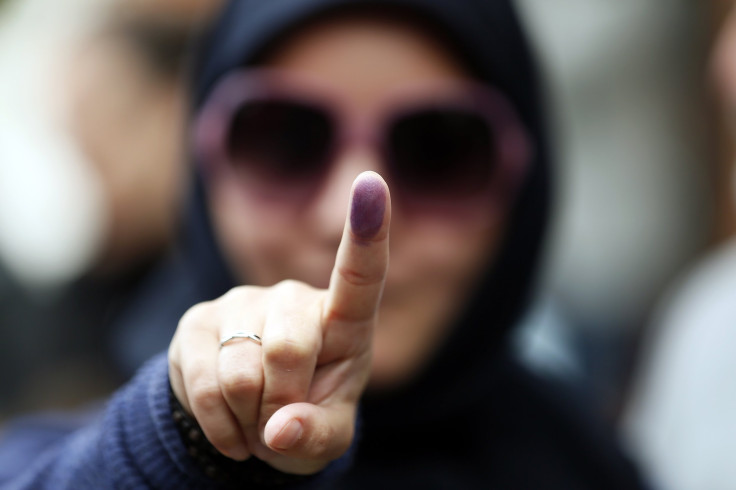Updated: Iran Election Officials Extend Voting By 10 Hours, High Turnout Estimated, No Clear Favorite Yet

Friday is Iran’s election day, and it's shaping up to see some of the highest voter turnout in recent history: Officials reported that they’ve extended voting by two hours to allow for a “rush of voters,” the Guardian and Al-Jazeera report.
There have been no reports of extreme violence, but the shadow of the 2009 elections looms large over Friday, when protests over election results turned bloody and didn’t change the outcome. For this election, Iran’s Supreme Leader Ayatollah Ali Khamenei has publically encouraged all of Iran’s 50 million eligible voters to “participate ... as soon as possible.”
Iran’s voter turnout traditionally averages between 60 and 70 percent for national elections, which contrasts with U.S. voter turnout that normally hovers between 50 to 60 percent. The candidates, three of them from the conservative space on the political spectrum and the other two classified as more reformist, all had to be approved by Iran’s Guardian Council before officially putting their names on the ballot.
Of the five, moderate Hassan Rohani, current government nuclear negotiator Said Jalili and current Tehran mayor Mohammad Baqer Qalibaf appear to be the favorites, but there is no clear front-runner.
As the Council on Foreign Relation’s Robert McMahon pointed out, the five candidates for this year’s election are “narrow” in their ideologies and “heavily screened by regime authorities,” and, as the Carnegie Endowment’s Karim Sadjapour pointed out earlier this year, the only vote that may really matter at the end of the day is that of Khamenei.
In the end, no matter who wins, much of the power in the country still rests in Khamenei’s hands, but the relationship between Khamenei and the president could deeply affect how the rest of the world will see and relate to Iran for the next four years, at least.
“The Iranian president isn’t the one who will determine the principles of Iran’s foreign and nuclear policy; those issues are in Khamenei’s hands,” Zvi Bar’el wrote in Haaretz on Friday. “But the president is enormously important in composing the music that accompanies this foreign policy.”
Khamenei has not publically announced a favorite of the six candidates, although he did tell Iran state TV that there does exist, in his mind, a front-runner. He also mentioned that “We [Iran] don’t give a damn” about whether the U.S. thinks the vote is credible.
© Copyright IBTimes 2024. All rights reserved.






















